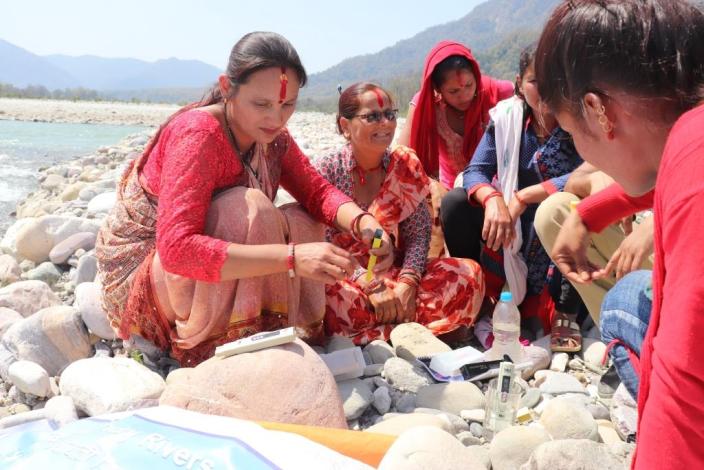Across South Asia’s transboundary river basins – the Ganges-Brahmaputra-Meghna (GBM), and the Salween in Myanmar, we supported projects bringing together civil society, the scientific community, and policymakers to collaborate in novel ways to inform river governance related policies. At the center of this approach is the voluntary engagement of local communities, mostly women and youth, to collect and analyze river water quality data to build an evidence base which subsequently informs multi-stakeholder dialogues for collective action on water governance.
Water-focused citizen science initiatives are also growing around the world. Governments are recognizing that citizens can be a valuable resource in managing time constraints related to data collection; their interest and volunteering spirit needs to be harnessed to make informed decisions.
Transboundary Rivers of South Asia’s (TROSA) Citizen Science approach involves a series of steps to build the local representative groups’ capacities from the ground up to identify better the issues faced by riverine communities. These include early warnings for flash floods, river pollution, irrigation, riverbank erosion, and riverine resources’ over-exploitation.

